Green Infrastructure for Hromadas: quotes from conference participants
On 21 October, U-LEAD with Europe held a Green Infrastructure for Hromadas conference in Kyiv. The event became a platform for thematic discussions on the results of initiatives implemented with the support of U-LEAD, focused on the lessons learned and achievements of AHs in the field of energy management, waste management, sustainable mobility, etc. with the support of the Programme and aimed to inspire the development of the hromadas’ potential.

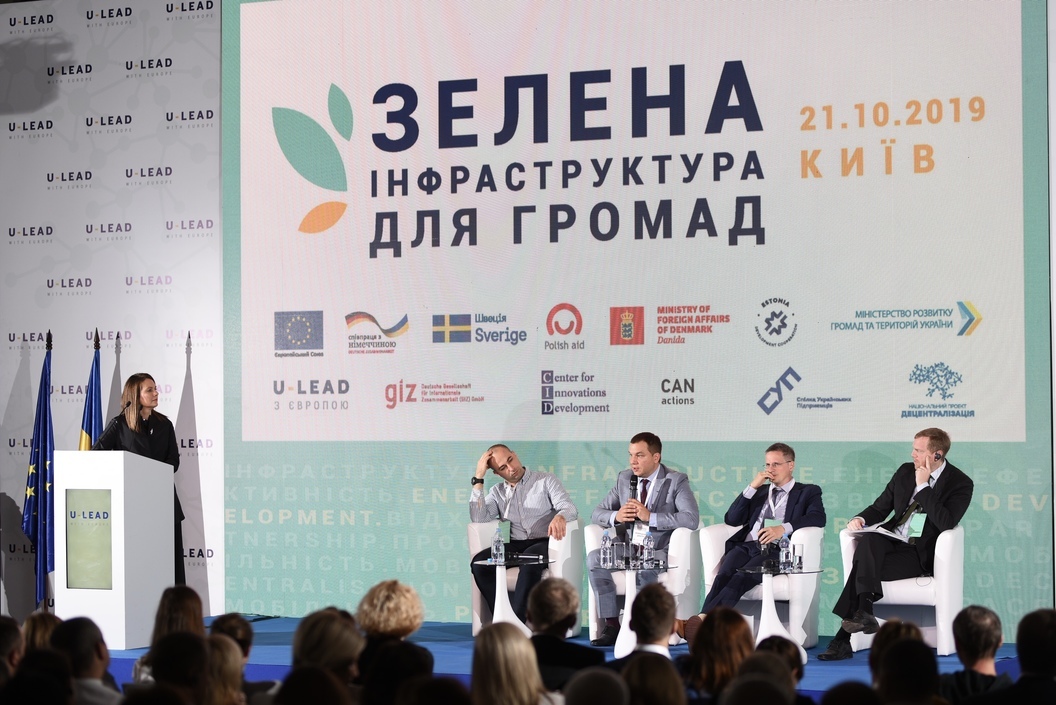
The event was attended by the representatives of amalgamated hromadas, MinRegion, the Embassy of the Federal Republic of Germany, the EU Delegation to Ukraine, GIZ Bureau in Ukraine and the Ministry of Economic Development, Trade and Agriculture of Ukraine.

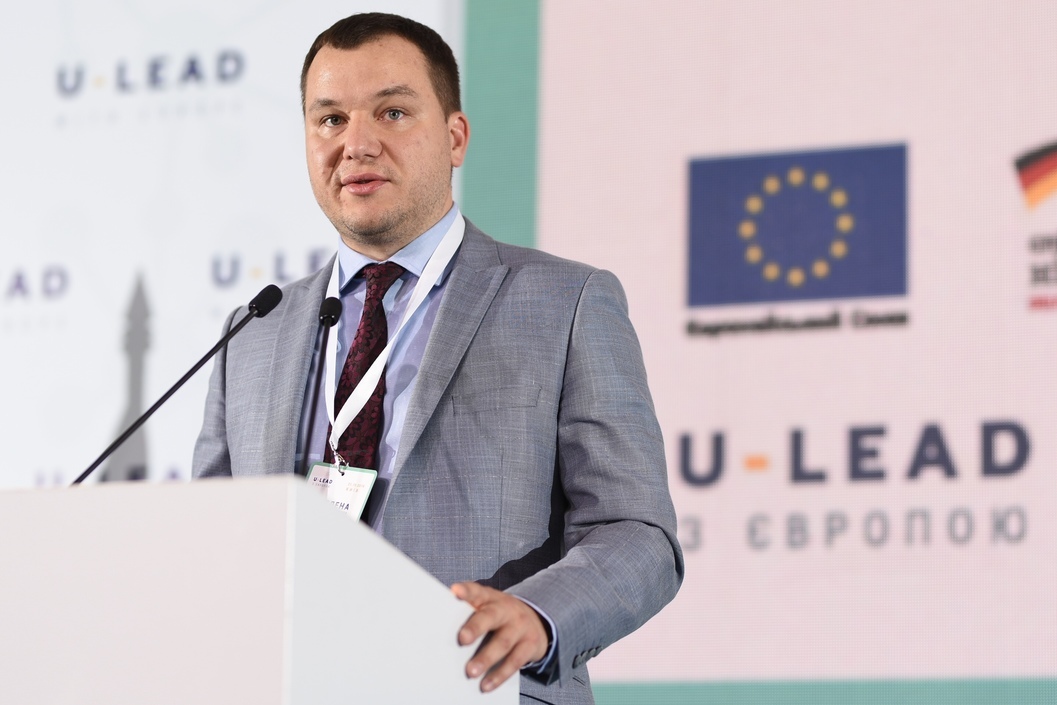
Dmytro Zhyvytskyi, Deputy Minister of Development of Communities and Territories, opened the event with the words: “Decentralisation and sectoral reforms are designed to change the lives of Ukrainians, approaches to coordination and communication between business, government and the active public. That is why it is important for us to hear the opinion of hromadas, since through hromada development, Ukraine is moving towards competitiveness in the world.”

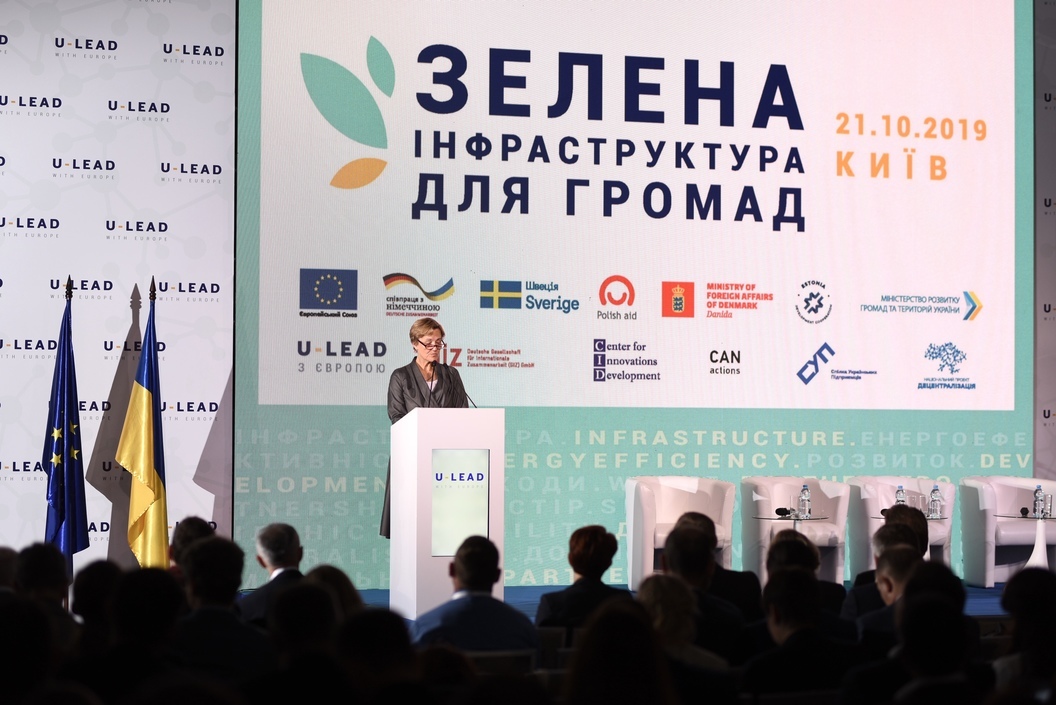
Anka Feldhusen, Ambassador Extraordinary and Plenipotentiary of the Federal Republic of Germany, outlined: “I am particularly pleased to see more than 100 representatives of Ukrainian hromadas here. From the point of view of Germany, decentralisation and local self-government reform is extremely important for Ukraine on its path to a stable, strong and effective democracy. Germany supports the decentralisation reform under the U-LEAD with Europe Programme. More than 7,000 support measures have already been implemented for 170,000 participants, particularly newly established hromadas.”

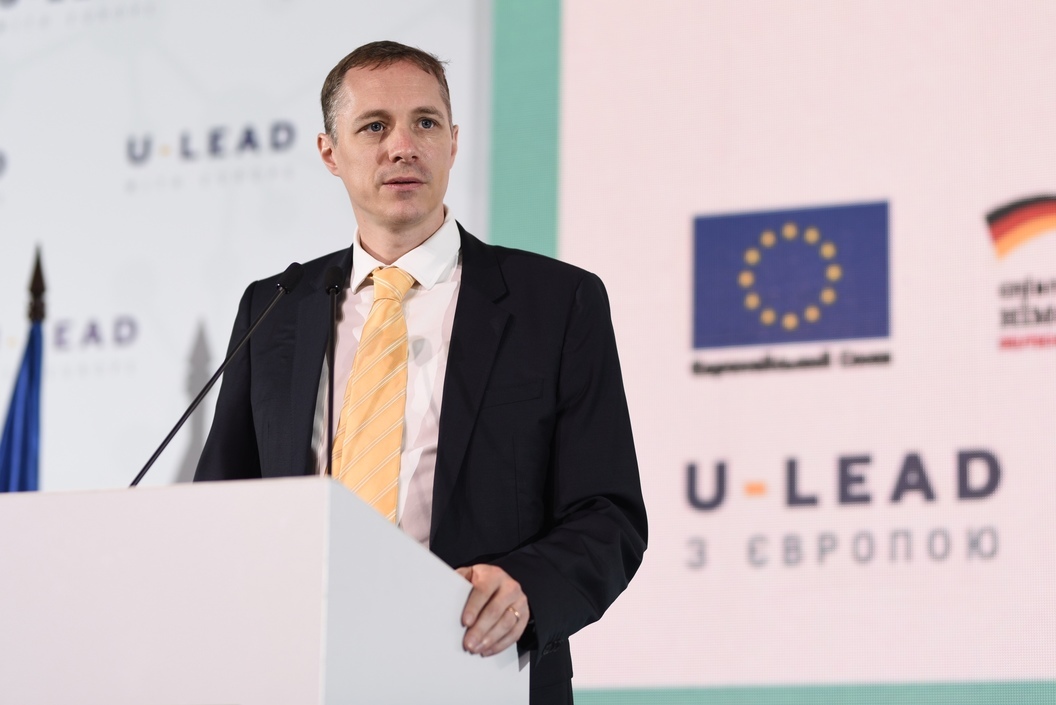
Frederik Coene, First Counsellor, Head of Operations Section 2 "Local and Human Development", EU Delegation to Ukraine, noted: “The EU together with donors Germany, Poland, Sweden, Denmark, Estonia have allocated 102 million euro for supporting decentralisation reform process, and there is more coming up. In terms of reforms for local self-governance and territorial administration reforms U-LEAD with Europe is one of the biggest programmes ever supported by donors. Green infrastructure is something really important for hromadas, this is where local hromadas should be more empowered to take decisions.”
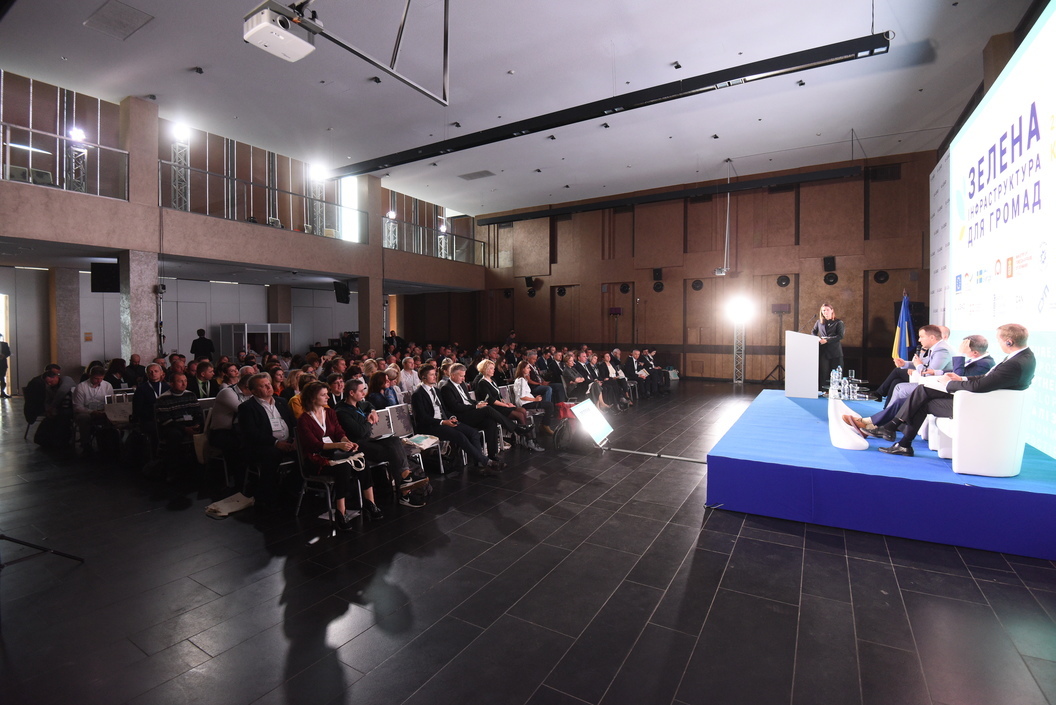
Bastian Veigel, GIZ Programme Director of U-LEAD with Europe, noted: “At the end of this conference day I believe that you will return home with a number of inspiring examples of how to work towards green infrastructure in hromadas. It is my hope that at least some of them will meet the approach and activities of the organisations for which you work. Phase 2 of the Programme will continue to work on regional, national and local levels and will aim at making hromadas prosperous and agreeable environments, thus benefiting all citizens of Ukraine.”
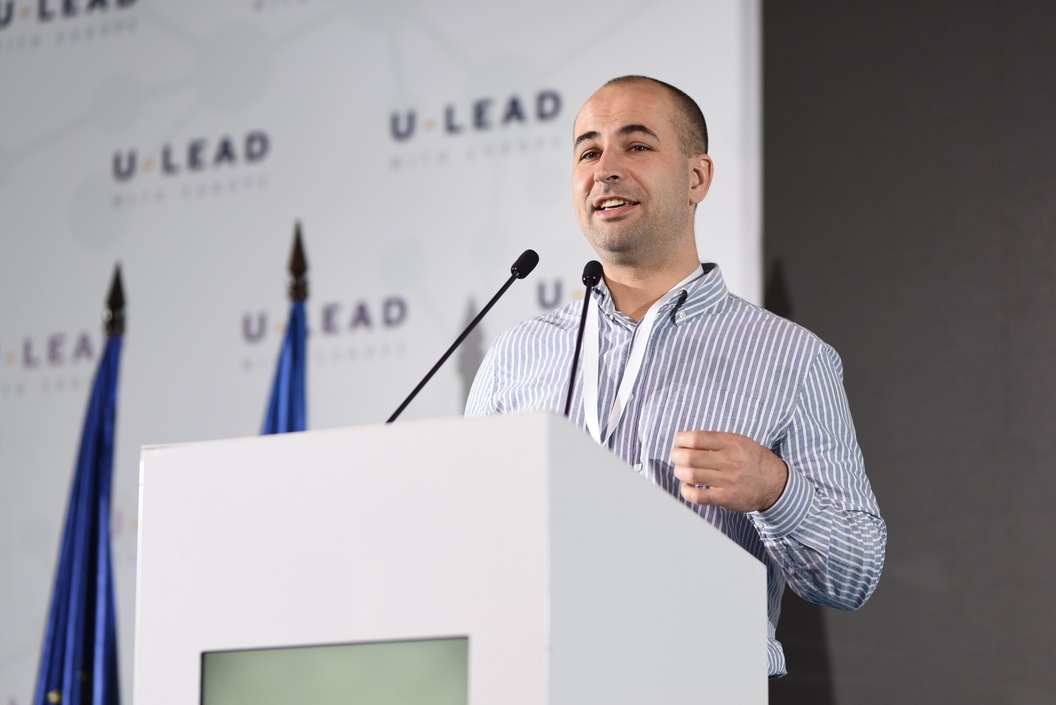
Andriy Zinchenko, co-founder of Greencubator NGO, presented opportunities for hromadas in the field of energy and his own “Solar City” project: “Energy is becoming more decentralised. For hromadas the difference is huge. Previously, we could only buy a kilowatt/hour of electricity. Now we can purchase a means of generating electricity. This gives communities new opportunities in the energy sector. The solar panel can now be purchased at the store. So all that hromadas need is not to wait, but to do what already exists and what is already possible.”
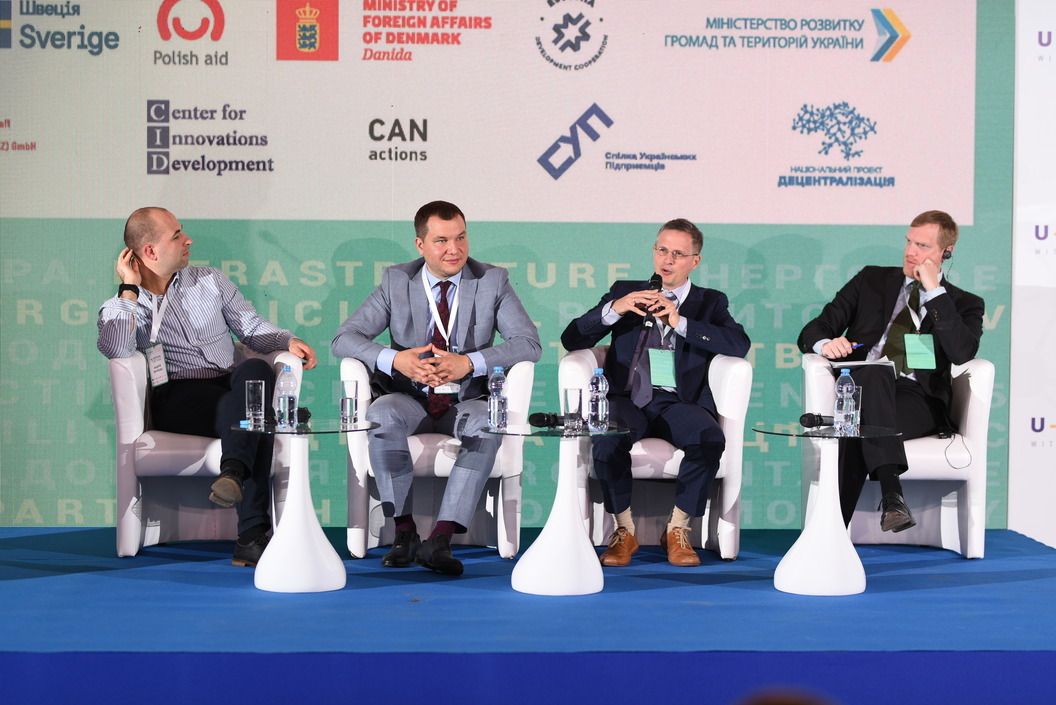
Benedikt Herrmann, First Secretary of the EU Delegation to Ukraine, also participated in the main panel discussion. He addressed the guests with the words: “The greatest innovators of Ukraine are sitting in front of us in this hall today. After all, the principles of AHs are at the heart of successful innovation – any new mechanism or tool capable of generating revenue, reducing costs, or building trust in local government can and should be implemented locally without waiting for guidance from above. And then there rise a healthy, fair competition between hromadas.”
The participants of the conference had the opportunity join interesting discussions of parallel thematic sessions. The first session was dedicated to the best practices of waste management in hromadas.

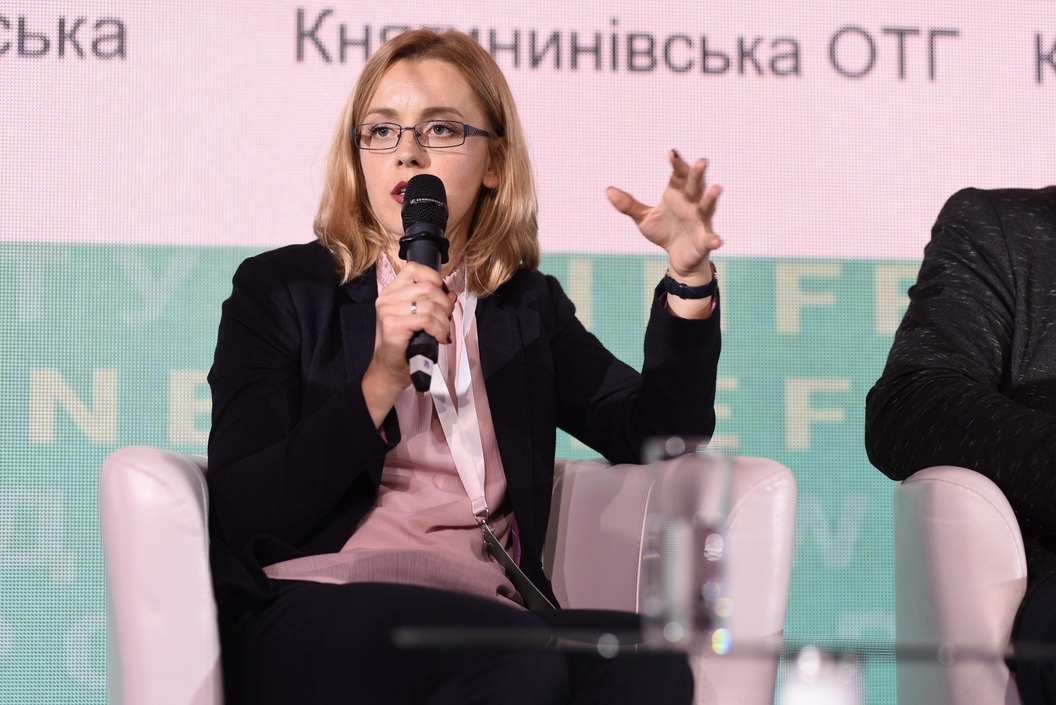
Oksana Pitsyk, head of the Smidynska AH, Volyn Oblast, shared her experience in participating in U-LEAD regional waste management initiatives: “Thanks to U-LEAD, we have realised that it is extremely important that every decision we make is evidence-based. Through practical trainings and a study visit to Slovenia, we have been able to carefully study the problem and its solution, as well as to be open and hear the truth.”
Within the framework of the session “Benefits of Municipal Energy Management in Hromadas”, key steps of energy management and the achievements of AHs in this direction were discussed. The speakers of the session – energy managers of hromadas, cooperating with the GIZ project “Energy Efficiency in Municipalities II” within the framework of the U-LEAD Smart Energy Management Initiative, shared their impressions and achievements of such cooperation.

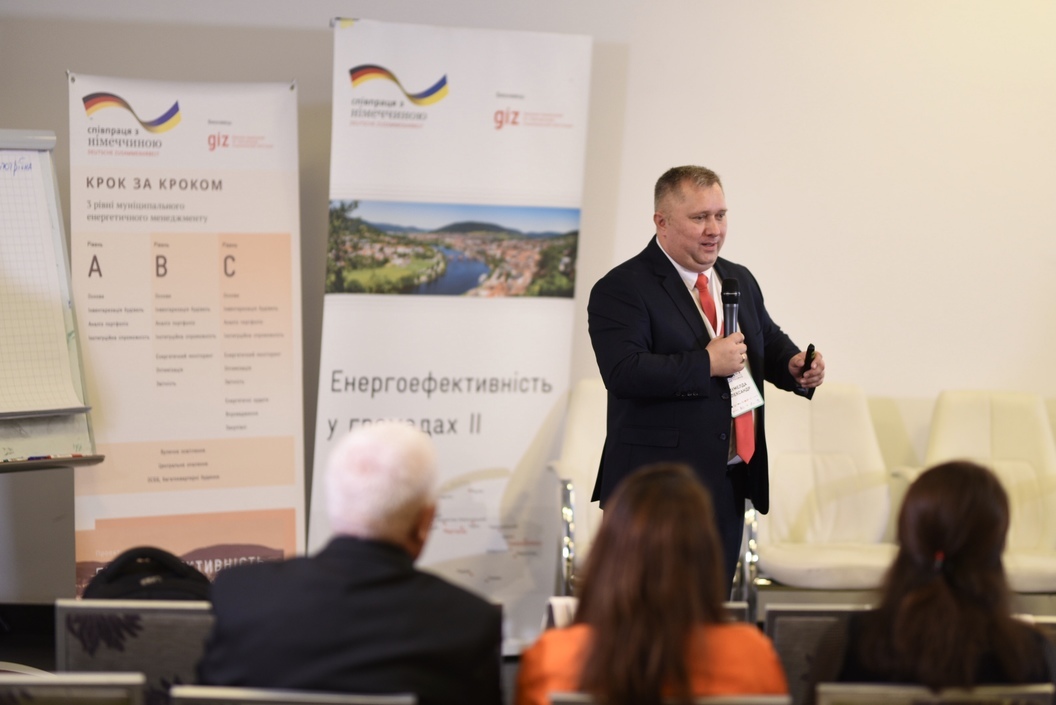
Yuriy Savych, energy manager of the Baranivska AH, Zhytomyr Oblast, said: “We started implementing the energy management system in 2017. GIZ and U-LEAD have helped us a great deal along the way, as we have undergone important trainings and received energy management system from GIZ. We are currently working to motivate facilities to use energy efficiently.”
Ruslan Bykov, energy manager of the Piryatynska AH, Poltava Oblast, shared his own experience: “At first we did not know where to go. Then we got into the GIZ project that implements the U-LEAD Initiative. Having obtained the necessary skills and a modern energy audit system from GIZ, we managed to save about UAH 0.5 million in energy costs.”
Victor Truba, energy manager of the Kalanchatska AH of the Kherson Oblast, noted: “Before the start of the project we thought we understood something in the field of energy management. When I first attended the U-LEAD and GIZ hands-on training, I was pleasantly impressed by the trainers’ level of competence as well as the training system itself. We were not allowed to rest all the year. I used to spend 50% of my time on energy management, and now spend all 90%. We were shown not only positive, but also unfavourable examples.”
The answer to the question of how public-private partnerships in the hromada can promote local development could be found out at the third session.

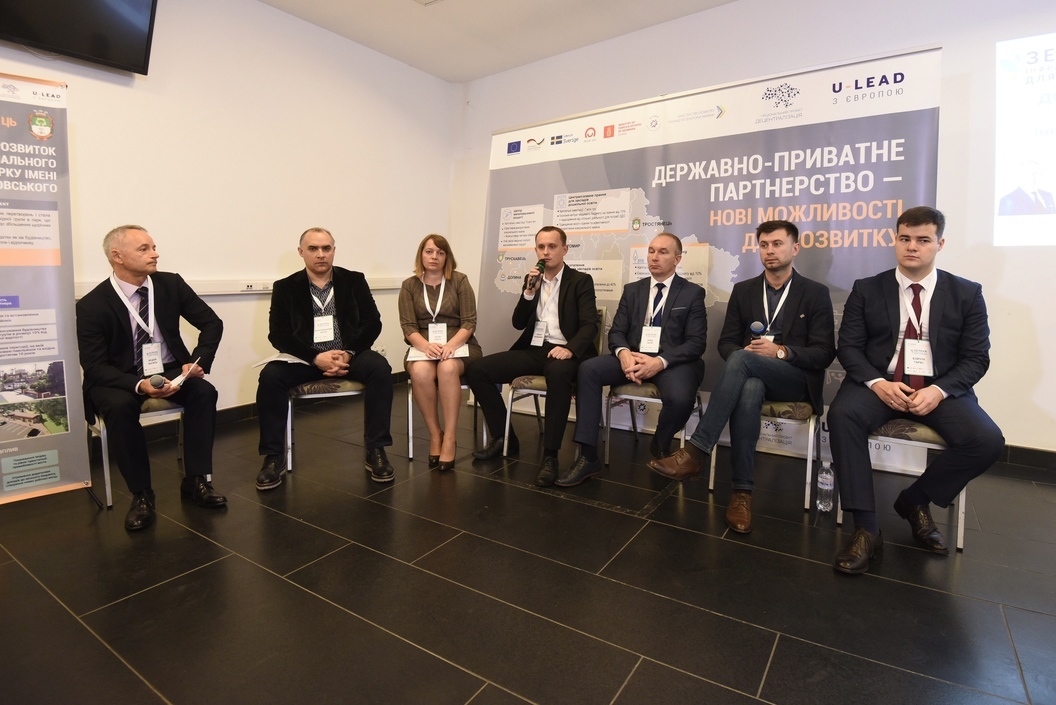
Olha Seher, head of the Communal Property Department of the Truskavets City Council, Lviv Oblast, was the first to take the floor at the session. Among others, their project was the first to reach the ultimate goal of signing an agreement with investor. A private micro-invasive surgery centre will be soon opened in the Truskavets City Hospital. “U-LEAD support has streamlined the process of PPP implementation between government and private investors by about 70%,” Olha said.
The local authorities of Truskavets, Trostyanets, Dolyna and Zhytomyr, whose presentations the session was dedicated to, were the first to convince the private business that the state in their person is the most reliable partner. “PPPs are clear rules of the game for a long run,” summed up Volodymyr Smoliy from Dolyna, Ivano-Frankivsk Oblast, “And this is exactly what investors expect from us.”

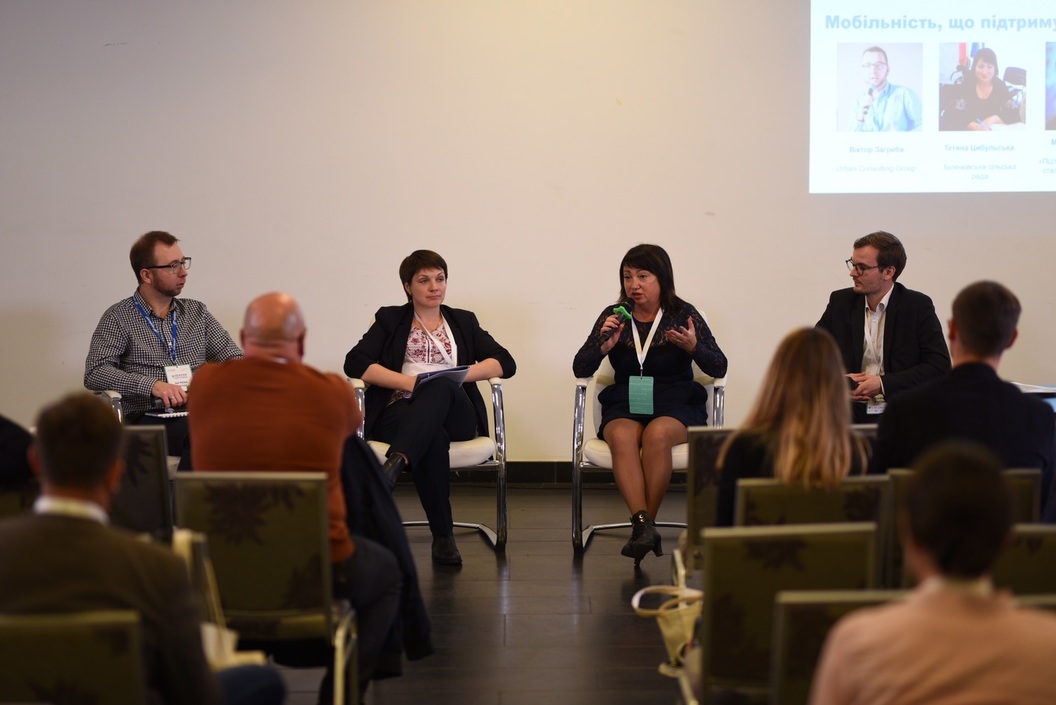
At the session on “Mobility supporting decentralisation” Tetiana Tsybulska spoke about the experience of her Bilenkivska hromada in the Zaporizhzhia Oblast: “I participated in the study visit to Germany organised by U-LEAD and, I must admit, I have never seen so many disabled people on the streets in my hromada as I saw in Germany. I even thought that there are few of them. But this is apparently not true. They just don’t leave their houses because, unlike German cities, Ukrainian ones often do not take these people’ needs into account. So, participation in the regional initiative triggered a shift in our mindset. We are now working on the mapping of places that need to be adapted to the needs of people with reduced mobility.”
Victoria Kostyuk from the Smyzka AH of the Rivne Oblast, in her turn, added: “The knowledge we have gained should go further. Otherwise it is a waste of money.”
How do I switch from a simple map to a map of the territory development? This issue was discussed at the session on “Informal spatial planning: a tool for hromada development”.

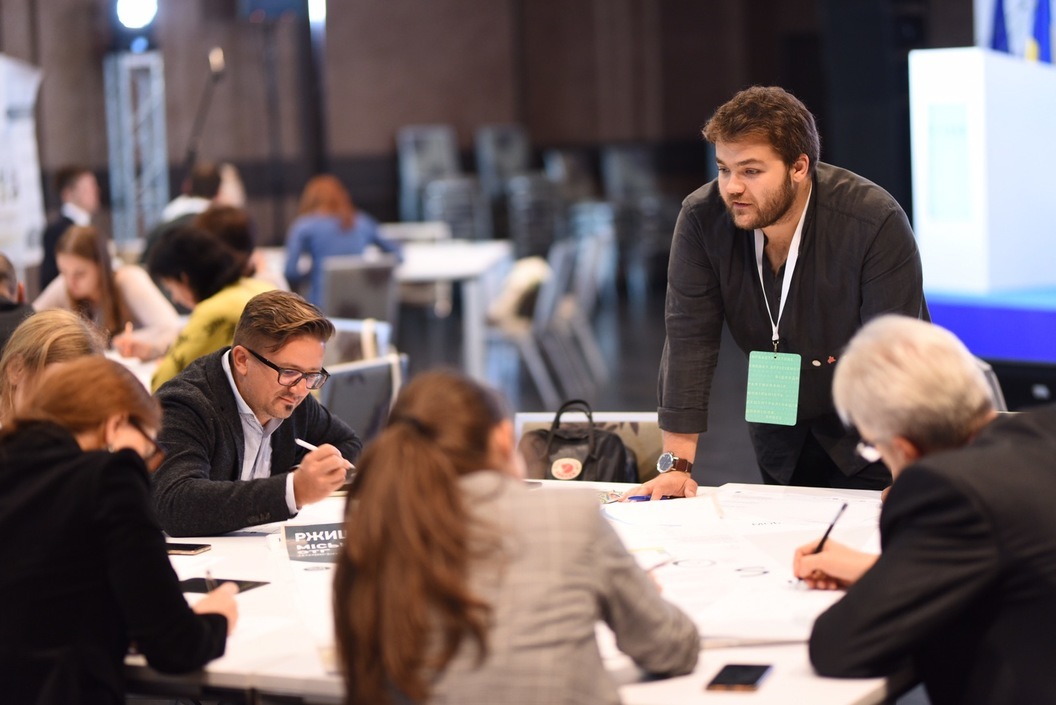
Vadym Denysenko, Programme Director of the CANactions School, outlined: “The Integrated Spatial Planning Project for AHs, implemented with the help of the U-LEAD with Europe Programme, is just fantastic!”.
A representative from the Rayivska AH, Dnipropetrovsk Oblast, shared her own experience: “Thanks to the U-LEAD with Europe Programme, we were able to develop a scheme for sanitary purification of AH. Until now, there was no solid waste management system in the hromada ...”.
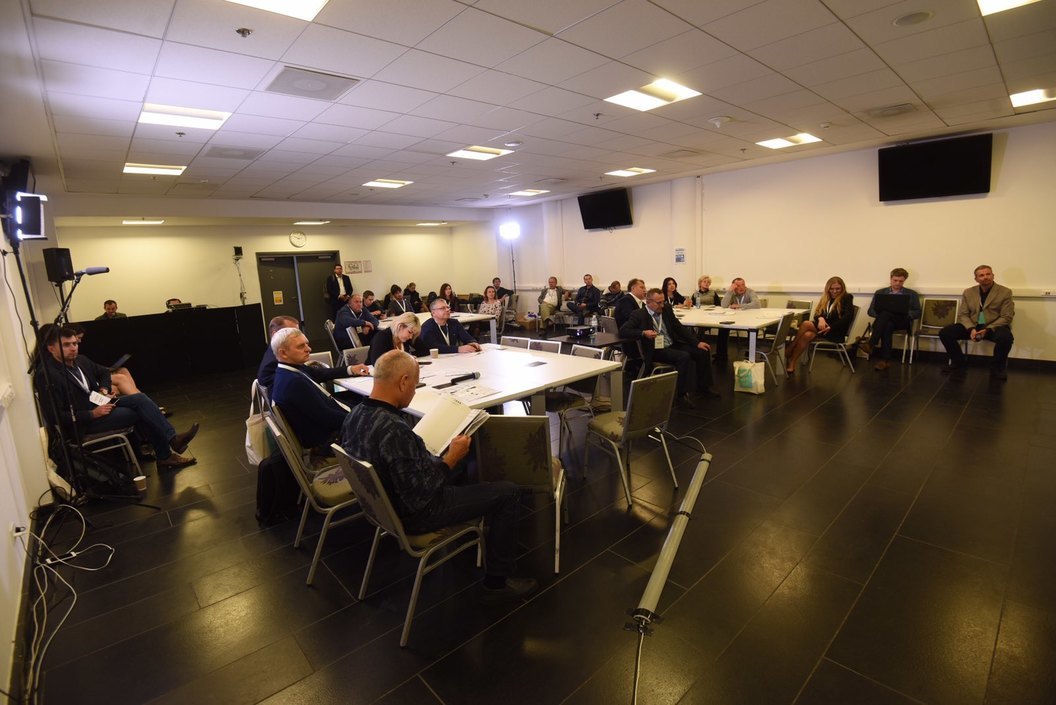
Participants of the U-LEAD E-Solution for Hromada Initiative actively shared their e-decision-making achievements based on data analysis. The U-LEAD initiative is being implemented by the Centre for Innovations Development, whose representatives presented the features of working with GIS data through the designed portal.
In particular, Sergiy Hapon, expert at the Centre for Innovations Development, said: “In order to cope with a lot of data, we have created a GIS DATA portal of cataloged sources of geodata, specific individual maps and web applications. 50 hromadas are involved in the project. This data is absolutely accessible. I urge everyone to actively join the gisdata portal. There is a section listing analytic e-solutions with explanations on how to apply them.”
The land manager of the Berezivska AH, Sumy Oblast, shared his experience gained during the project: “We participate in IT-solutions, and almost all AH residents have been included in the register. For example, we have found many errors in the registry of addresses, so now we correct them with the help of the GIS DATA portal. We also included communal property, land assets into the system and have joined the budget module.”

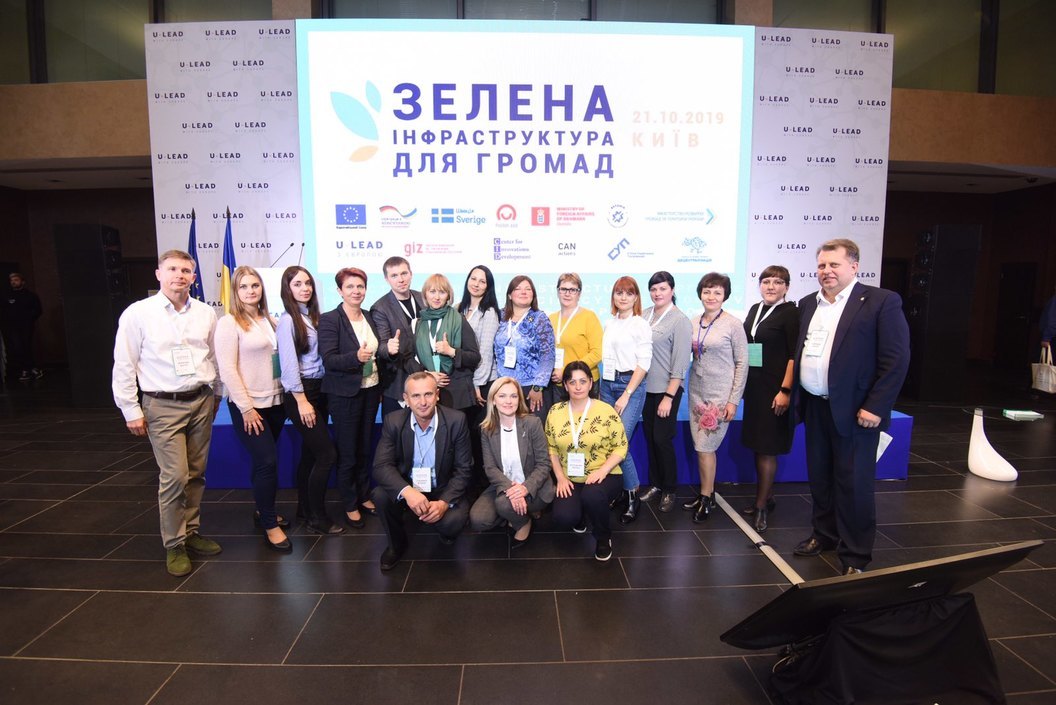
The Green Infrastructure for Hromadas conference was organised by the U-LEAD with Europe Programme in partnership with GIZ Projects "Energy Efficiency in Municipalities II", “Upgrading Municipal Waste Management Services in AHs” and "Sustainable Mobility", as well as CANactions School, Centre for Innovations Development and the Union of Ukrainian Entrepreneurs.
22 December 2025
Статут демократії: Криничанська громада серед перших в Україні прийняла новий ключовий документ
Статут демократії: Криничанська громада серед...
Незважаючи на складну безпекову ситуацію, громади Дніпропетровської області не припиняють роботу над побудовою...
22 December 2025
В Броварах відкрився сучасний профорієнтаційний хаб DECIDE для учнів 7–9 класів
В Броварах відкрився сучасний профорієнтаційний...
У Броварському професійному коледжі запрацював новий, вже дев’ятий за рахунком, профорієнтаційний хаб, створений в...
22 December 2025
Закон про забезпечення законності та прозорості...
5 листопада поточного року Верховна Рада України прийняла Закон України «Про внесення змін до деяких...
22 December 2025
Перетворення комунального підприємства на...
Перетворення комунального підприємства (КП) на акціонерне товариство (АТ) або товариство з обмеженою...